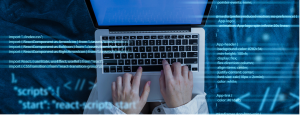
Space & defence: enhancing dual-use satellite technologies in EDF 2025
Space & defence: enhancing dual-use satellite technologies in EDF 2025 David García ArrateSettings The European Defence Fund (EDF) 2025 continues to drive innovation in space
Read article at El Mundo Financiero
Read article at Ejecutivos
Currently, the European ecosystem offers a large number of European Programmes and Funds for various thematic areas and fields in which the European Union implements policies and measures. In view of this variety of funds, it is crucial for project managers to ensure an effective and efficient management of the awarded projects, both in technical and financial terms. This involves a number of actions, such as complying with European Commission rules and contractual commitments, monitoring project objectives within the approved budget and timetable, maintaining effective communication between partners, and providing the necessary information to the European Commission.
If you are looking for successful management of a European grant, regardless of the scope of the project, don’t miss these tips shared below.
In most cases, the Project Management Plan is included as an official deliverable in the project proposal and submitted to the European Commission after the first 6 months of the project. However, whether foreseen or not, the Project Management Plan is a key reference document alongside the Grant Agreement and the EU Programme Regulation. This Management Plan provides the consortium with useful guidelines on:
In terms of document management, it is crucial to follow some simple rules to facilitate the management of documentation generated throughout the project. This includes defining document responsibilities, formatting and layout rules, and instructions on the level of confidentiality.
To monitor the progress of the project, the European Commission requires periodic reports, deliverables, progress meetings and reviews. In addition, internal reports can be used to quickly identify problems and risks, and to apply proactive management. Therefore, it is essential to define the timing of official reports and internal reports, including their periodicity.
Choosing the right project management tool is essential to ensure the success of a European project. This will largely depend on the specific needs of the project. It is therefore important to carefully assess each tool at the start of the project and use it to plan and delegate work according to the project’s work packages, tasks, sub-tasks and timetable. This will help to ensure that the project objectives are met and that good control over the project is maintained.
It is important to monitor the progress of the project on a regular basis to ensure that it is progressing adequately according to the schedule and goals set out in the initial proposal. To assess progress, regular technical reports can be requested from partners and evaluated against the three key pillars of the project: scope, cost and time. In addition, it is advisable to request internal financial reports every 3 to 6 months to get an idea of the financial status of the project and the associated costs. Make sure to comply with the regulations of the EU programme to which the project belongs.
It is recommended that, at the beginning of the project, the basic documents and regulations of the European Programme to which the consortium belongs are identified in order to ensure compliance with EU regulations. It is important that the content of each reference document is made clear to the consortium members, and that the financial rules that apply to the project and to the partners are explained in detail.
In addition, it is recommended that project beneficiaries attend the information days and online training sessions organised by the European Commission. These measures will allow a better monitoring of the project progress and ensure that the European grant is used in an effective and efficient way. It will also foster collaboration between team members, partners and other actors involved in the project, which is essential in the management of a European grant.
At Euro-Funding we define the optimal structure of the European project to maximise the chances of funding and prepare the winning proposal perfectly in line with the objectives and requirements of the grant programme.
We carry out an exhaustive diagnosis of the innovative potential and draw up a roadmap with ad hoc information on funding possibilities.

Space & defence: enhancing dual-use satellite technologies in EDF 2025 David García ArrateSettings The European Defence Fund (EDF) 2025 continues to drive innovation in space

Health & medical innovation: the role of defence research in civilian healthcare Mónica GarcíaSettings The European Defence Fund (EDF) 2025 determine to support groundbreaking medical

Cybersecurity & AI: Advancing Europe’s defence and digital sovereignty with EDF 2025 Patrizio RicciSettings The digital landscape is evolving at an unprecedented pace, bringing both
